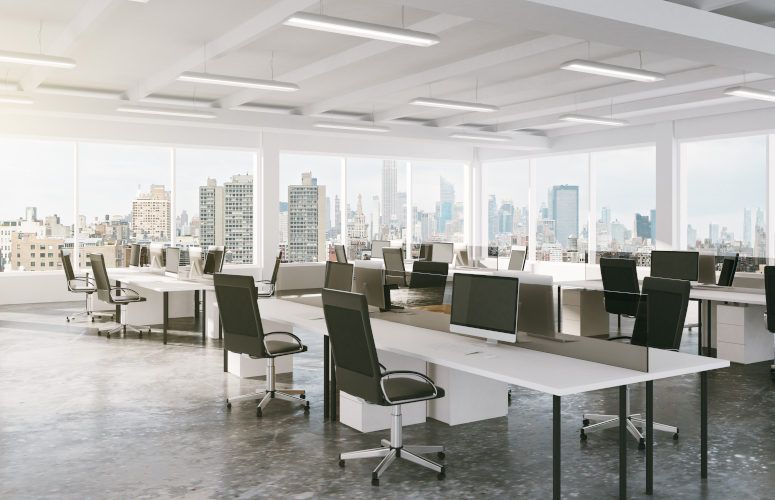
Future of Hybrid Work Discussed at NAIOP NJ Event
On Nov 9, 2021Commercial real estate leaders shared insights into the future of hybrid work and the importance of technology to support seamless work connections during NAIOP New Jersey’s annual CEO Perspective. The interactive discussion, part of the commercial real estate development association’s Industry Insights series, took place at The MC Hotel in Montclair.
Creating a Safe, Secure and Healthy Experience for Workers
“It’s been an interesting year and a half. Landlords have been challenged with tenants working from home and most people are now migrating back,” said Brian Decillis, managing director at Cushman & Wakefield, who noted that roughly 40% of New Jersey’s workforce has returned to their pre-pandemic commute.
Jonathan Schultz, managing principal of Onyx Equities, noted that by focusing on a hybrid model, upgraded technology and new amenities, landlords can create a safe, secure and healthy experience for workers going forward. He invited Angelo Stracquatanio, CEO and co-founder of Apprentice.io, to comment on the role office space played in the growth of Apprentice.io, an intelligent software company for life science manufacturing, which grew six-fold during the pandemic. As a result, the firm leased 33,000 sq. ft. of space at Hudson Waterfront Tower in Jersey City. “When you have that much growth, collaboration matters, and some things just can’t be done over Zoom,” said Angelo Stracquatanio, CEO and co-founder of Apprentice.io.
When fitting out their new office space, Apprentice.io created the concept of neighborhoods, which involved shared common areas where groups could collaborate. “We found that people didn’t like walled-off conference rooms because they felt uncomfortable and stuffy. Small and large zones allow different groups to meet in an open area,” said Stracquatanio.
Decillis added that with the increase in video conferencing, Cushman & Wakefield created Zoom rooms for added privacy.
Hub and Roam: The Workplace Model of the Future
Schultz asked panelists to comment on the “hub and roam” workplace model and its impact on companies as they learn to operate differently.
“Clients don’t want to come back to the same space or building, they want to come back to something better,” said Decillis. “Hybrid is here to stay but the office is alive and well. Technology has saved the day. If it wasn’t for VPNs and the ability to have low latency and speed, companies would have been paralyzed. The migration back to the office continues and hybrid is working.”
With thousands of employees in New Jersey, Pari Bajpay, vice president business products with Verizon Business, added that, “We are not asking people to return to work yet, but when we do it will be a hybrid environment. Not every function requires people to be in the office physically but a lot of functions perform a whole lot better in the office because you need to connect with people.”
Bajpay also pointed to the impact edge computing is having in today’s work environment. “The big innovation that happened during the pandemic is that the cloud is becoming decentralized.”
The increase in connected/enabled devices has outpaced network and infrastructure capabilities. As a result, edge computing on 5G networks is an application that allows data to be processed and analyzed closer to where it’s created. “It enables our buildings to be smarter for our tenants and exponentially increases efficiencies,” said Bajpay.
Schultz added that landlords are realizing that reinvesting in digital and communication infrastructure is an opportunity to enhance the workplace experience. “The bottom-line is that companies are going to be operating differently. “The office will be a core, essential resource moving forward. But technology has pushed us to another level.”
To access more business news, visit NJB News Now.
Related Articles:





